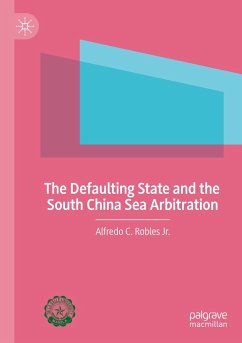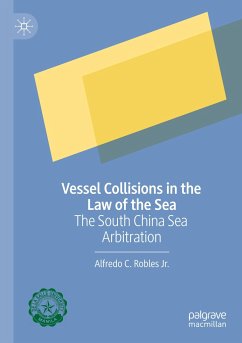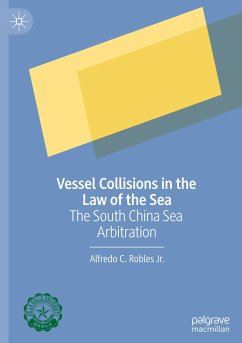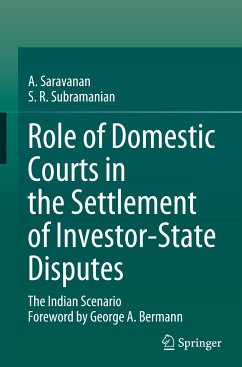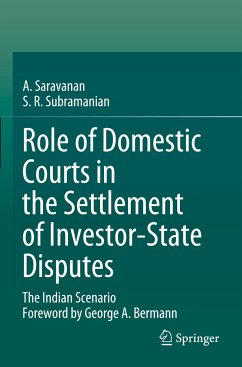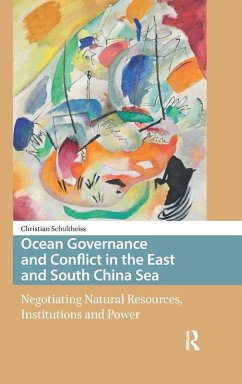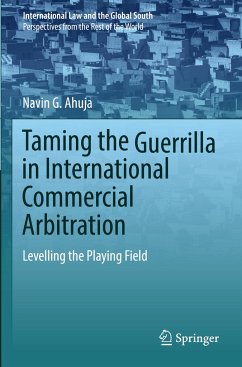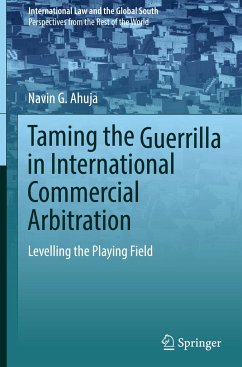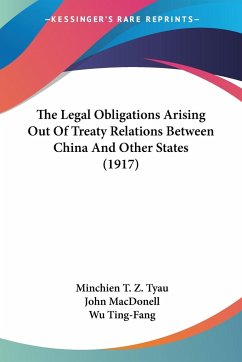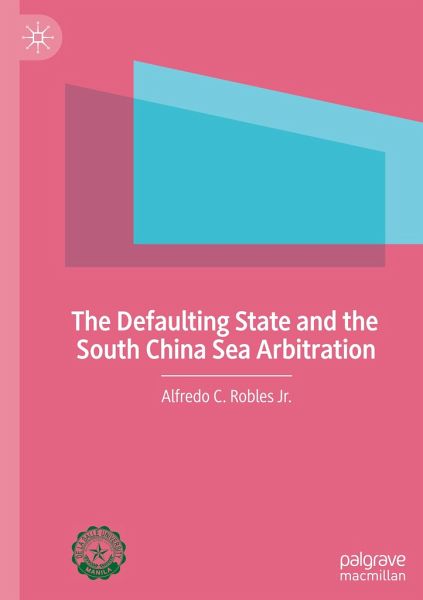
The Defaulting State and the South China Sea Arbitration
Versandkostenfrei!
Versandfertig in 6-10 Tagen
121,99 €
inkl. MwSt.
Weitere Ausgaben:

PAYBACK Punkte
61 °P sammeln!
This book focuses on the legal and procedural problems caused by China's default in the South China Sea Arbitration. Many of these problems arose because in several respects, China departed from the conduct of other defaulting States in cases before the International Court of Justice.The book argues that the Tribunal, confronted with the difficulties of maintaining the balance between two parties in a situation of default, drew on the full range of its powers to ensure that neither China nor the Philippines would suffer from China's default. Further, the book describes the shortcomings of the ...
This book focuses on the legal and procedural problems caused by China's default in the South China Sea Arbitration. Many of these problems arose because in several respects, China departed from the conduct of other defaulting States in cases before the International Court of Justice.
The book argues that the Tribunal, confronted with the difficulties of maintaining the balance between two parties in a situation of default, drew on the full range of its powers to ensure that neither China nor the Philippines would suffer from China's default. Further, the book describes the shortcomings of the submissions of putative amicus curiae. It refutes China's questioning of the independence and impartiality of the experts and of the judges. In so doing, it explains the expert opinions and the Tribunal 's assessments of the latter in the areas of satellite imagery, coral reef ecology, and navigational safety, while rebutting the half- truths and counter-truths disseminated by Chinese scholars about the proceedings. The book compares China's threats to the independence of the Tribunal to its behavior towards Chinese judges. It places China's accusations of bias against the Tribunal in the context of China's domestic situation, and concludes that the Tribunal, acting independently and impartially, was able to perform the judicial function, despite China's default.
The book argues that the Tribunal, confronted with the difficulties of maintaining the balance between two parties in a situation of default, drew on the full range of its powers to ensure that neither China nor the Philippines would suffer from China's default. Further, the book describes the shortcomings of the submissions of putative amicus curiae. It refutes China's questioning of the independence and impartiality of the experts and of the judges. In so doing, it explains the expert opinions and the Tribunal 's assessments of the latter in the areas of satellite imagery, coral reef ecology, and navigational safety, while rebutting the half- truths and counter-truths disseminated by Chinese scholars about the proceedings. The book compares China's threats to the independence of the Tribunal to its behavior towards Chinese judges. It places China's accusations of bias against the Tribunal in the context of China's domestic situation, and concludes that the Tribunal, acting independently and impartially, was able to perform the judicial function, despite China's default.





